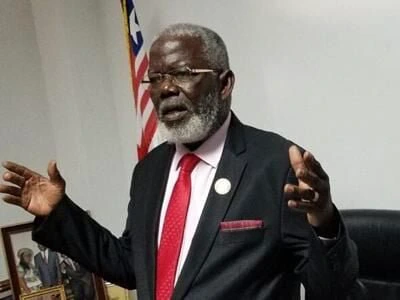Liberia: The Life and Legacy of Prince Y. Johnson: A Complex Figure in Liberia's History

On December 24, 1989, as most Liberians celebrated Christmas, a group of Libyan-trained armed men from the National Patriotic Front of Liberia (NPFL) launched an attack on Butuo, a town in Nimba County, Liberia. This assault marked the beginning of Liberia's 14-year civil war, leaving an estimated 250,000 dead and the country in ruins.
The rebellion was a response to the authoritarian regime of Samuel K. Doe, who seized power in a bloody 1980 coup. Doe's government became infamous for human rights abuses, including politically motivated killings and suppression of the press. Journalists, like those at the Daily Observer, were often harassed, arrested, and even killed.
Nimba County, which suffered heavily under Doe's scorched-earth policies, became a stronghold of resistance. However, the NPFL soon fractured, with Prince Y. Johnson breaking away to form the Independent National Patriotic Front of Liberia (INPFL). A former soldier and aide to Gen. Thomas Quiwonkpa, Johnson became a dominant warlord during the conflict.
In September 1990, Johnson's forces captured and gruesomely tortured President Doe to death. This act, widely condemned, remains a defining moment in Liberia's history. Despite his role in the civil war, Johnson played a crucial part in Liberia's political developments, helping establish the Interim Government of National Unity (IGNU) and later influencing peace efforts.
After fleeing to Nigeria during Charles Taylor's Operation Octopus in 1992, Johnson lived in exile for over a decade. While in Lagos, he penned a famous letter declaring the military phase of Liberia's revolution over and calling for peace.
Returning to Liberia in 2004, Johnson transitioned into politics, serving as Senior Senator for Nimba County until his death on November 28, 2024. Known as a kingmaker, he played a pivotal role in the elections of Liberia's last three presidents and established a university in Nimba to promote education.
Johnson’s legacy remains polarizing. To some, he was a liberator who defended his people. To others, he was a warlord responsible for atrocities. His death reignited debates over his impact, with tensions surrounding his funeral requiring government intervention to prevent his body’s desecration.
As Liberia bids farewell to this complex figure, his contributions and flaws serve as a reminder of the challenges faced during and after the civil war. May the positive aspects of his life inspire others to work toward unity and progress in Liberia. Farewell, Senator Prince Y. Johnson.
- Vibnix Blog
- Politics
- News
- Liberia News
- Entertainment
- Technology
- Education
- Art
- Causes
- Crafts
- Dance
- Drinks
- Film
- Fitness
- Food
- Games
- Gardening
- Health
- Home
- Literature
- Music
- Networking
- Other
- Party
- Religion
- Shopping
- Sports
- Theater
- Wellness


